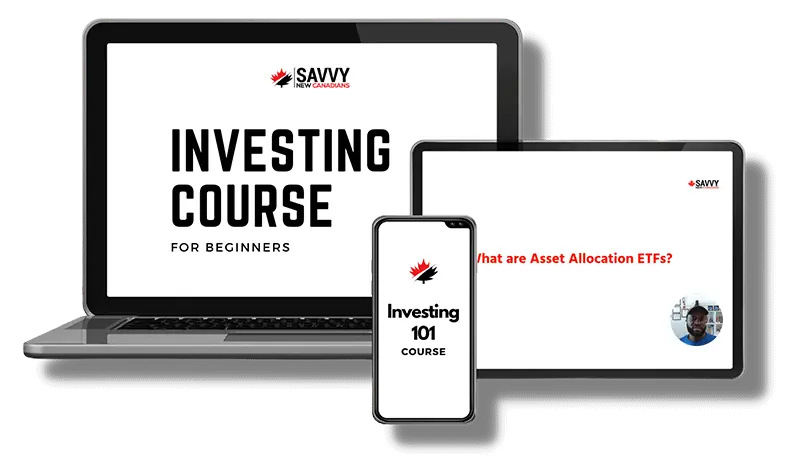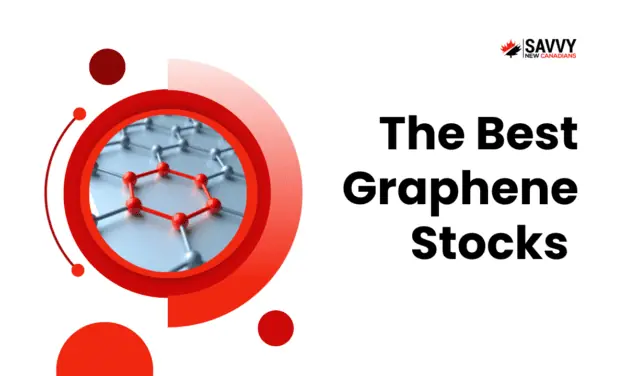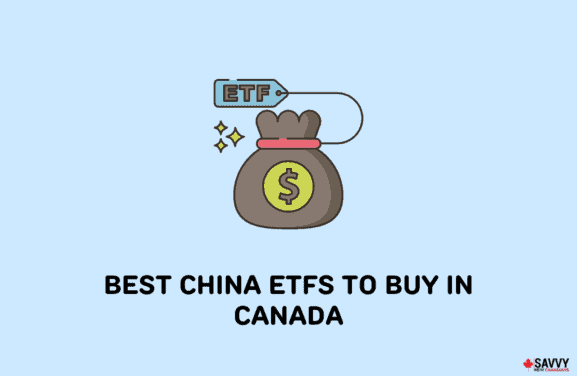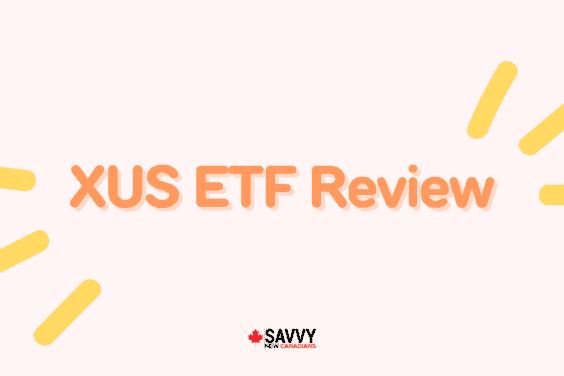If you invest in ETFs or mutual funds, you must educate yourself on the fees associated with owning those assets. Look up any fund, and you will see that it comes with a management fee and management expense ratio (MER).
These fees are presented as a percentage and are paid according to how much you have invested in the fund. While the MER is typically lower than 1.0% for ETFs, a higher MER will impact your long-term gains.
This article will discuss the differences between management fees and MER and how they affect your investment in ETFs or mutual funds.
Fund Management Fees Explained
The management fee is reasonably straightforward to understand. This fee is charged by the ETF or mutual fund provider to operate that fund. Think of companies like Vanguard or Blackrock. They need to hire fund managers and staff to keep the fund operational.
Other operational costs included in the management fee are marketing, legal advice, customer support, and administrative costs.
Management Expense Ratio (MER) Explained
The MER is what you should focus on when you are considering investing in a fund. Why? The MER includes the management fee as well as any additional costs of buying or selling the assets held in the fund. The easiest way to think of this is as the transaction fees for managing the fund.
If you see a management fee and MER listed for a fund, the MER is the annual expense you need to pay. The MER is calculated as a percentage of the total amount you have invested.
As an example, if an ETF has a MER of 0.25%, then you will pay:
- $2.50 for every $1,000 you have invested in the ETF or
- $25.00 for every $10,000 you have invested in the ETF
This is How Management Fees and MERs Impact Your Returns
For a vast majority of ETFs and mutual funds in Canada, the fees will be indirectly borne. What does this mean? It means that the fees will be automatically deducted from your investment throughout the year. Rather than a lump sum, it is usually done through a reduced return or lower distribution.
So, what impact does the MER have on your returns? Logically speaking, the higher the MER, the lower your total returns will be. This is more applicable to mutual funds which tend to have higher MERs than ETFs.
As an example, if the MER of the mutual fund is 1.5% and your returns for the year are 8.0%, then your total returns net expenses will be 6.5%. Let’s extrapolate this over several years.
| Years | MER | Amount Invested | Total Returns with MER | Total Returns Without MER |
| Year 1 | 1.5% | $10,000 | $10,650 | $10,800 |
| Year 2 | 1.5% | $10,650 | $11,342.25 | $11,664.00 |
| Year 3 | 1.5% | $11,342.25 | $12,079.50 | $12,597.12 |
| Year 4 | 1.5% | $12,079.50 | $12,864.66 | $13,604.89 |
| Year 5 | 1.5% | $12,864.66 | $13,700.87 | $14,693.28 |
| Year 6 | 1.5% | $13,700.87 | $14,591.42 | $15,868.74 |
| Year 7 | 1.5% | $14,591.42 | $15,539.87 | $17,138.24 |
| Year 8 | 1.5% | $15,539.87 | $16,549.96 | $18,509.30 |
| Year 9 | 1.5% | $16,549.96 | $17,625.70 | $19,990.05 |
| Year 10 | 1.5% | $17,625.70 | $18,771.37 | $21,589.25 |
Of course, this example assumes no further funds are added to your investments and a consistent 8.0% return each year.
At a glance, we can see that the 1.5% MER can cost you $2,817.88 over ten years. That’s not insignificant, so it is easy to see why investors try to pick funds with lower MERs.
Average MERs in Canada
Unfortunately, Canada is known for having very high fees for its mutual funds and ETFs. In 2023, the average MER in Canada for mutual funds is just under 2.0% compared to under 0.70% in the United States.
ETFs generally have a lower MER than mutual funds on average. In Canada, the average MER for an ETF likely sits at about 0.25-0.50%. Most index funds, like the Vanguard S&P 500 Index ETF (VFV.TO) and the Blackrock iShares Core S&P US Total Market Index ETF (XUU.TO), have low MERs of 0.09% and 0.08% respectively.
What is a Good Management Fee for a Mutual Fund?
As we mentioned, the average MER in Canada for mutual funds sits at just below 2.0%. That doesn’t mean you have to pay that much in fees, though. There are plenty of mutual funds in Canada with reasonable MERs.
In Canada, if you can find a mutual fund with a great record of growth and steady returns with an MER of between 0.5% and 1.5%, then it is likely a sound investment. Some examples of these mutual funds include the RBC Canadian Equity Income Fund (0.76%) and the TD Balanced Index Fund (0.89%).
ETF Fees Are Lower Than Mutual Funds because…
There are a few reasons why ETF fees are lower than mutual funds. The main reason is that mutual funds are actively managed, while ETFs are mostly passively managed.
As time has gone on, there have been more passively managed mutual funds and actively managed ETFs. The general rule of thumb is the more active the fund management, the higher the fees.
Another reason is that ETFs trade on the stock exchanges while mutual funds are privately managed by institutions. When investors sell shares of an ETF there is little that the fund manager has to do as someone else on the market will buy them. With a mutual fund, the fund usually has to sell some assets to cover the redemption cost. When this happens, all shareholders of the mutual fund incur capital gains for which they must pay on their income tax.
How to Pay Lower Investment Fees in Canada
Paying lower investment fees is the key to maximizing your long-term gains. Here are a few ways you can pay lower investment fees in Canada:
DIY Investing
Doing it yourself is another option, and the best part is when you buy individual stocks, you do not have to pay a MER. Now, there is much more volatility when investing in stocks over ETFs or mutual funds. It has historically been difficult to beat the returns of the total market over time, which is why most investors are better off buying low-cost index ETFs for their portfolios.
Questrade

Trade stocks, ETFs, options, FX, bonds, CFDs, mutual funds, etc.
Get $50 trade credit with $1,000 funding
Low and competitive trading fees
No quarterly inactivity fees
Access to advanced tools and trading data
Top platform for advanced traders
Transfer fees waived
Qtrade

Up to $150 sign-up bonus
Trade stocks, ETFs, options, bonds, etc.
Excellent platform for newbies and seasoned investors
Competitive trading fees
Excellent customer service
Robo-Advisors
Robo-advisors are rapidly growing in popularity in Canada, and for good reason. You pay a portfolio management fee, which allocates your money into funds or stocks according to your risk tolerance and preferences. You do not have to worry about paying management fees or MERs, just the robo-advisor fee. Some examples are Wealthsimple Invest, which charges 0.4 to 0.5% annually and QuestWealth Portfolios, which charges 0.20% to 0.25%.
Wealthsimple Invest

Professionally managed ETF portfolios
Multiple account types
Auto rebalancing and div reinvesting
Get a $25 bonus with a $500 deposit
Questwealth

Professionally managed ETF portfolios
Multiple accounts & low fees
Auto rebalancing and div reinvesting
Invest $10K free in 1st year
Stick to Index Funds
With investing, most people are just better off keeping things simple. Index fund ETFs offer exposure to an entire market like the S&P 500 or the S&P/TSX. These typically come with low MERs because there isn’t much management involved. If you want to invest in ETFs and want to pay lower fees in Canada, look at adding index funds to your portfolio.
Related: Best All in One ETFs in Canada.






